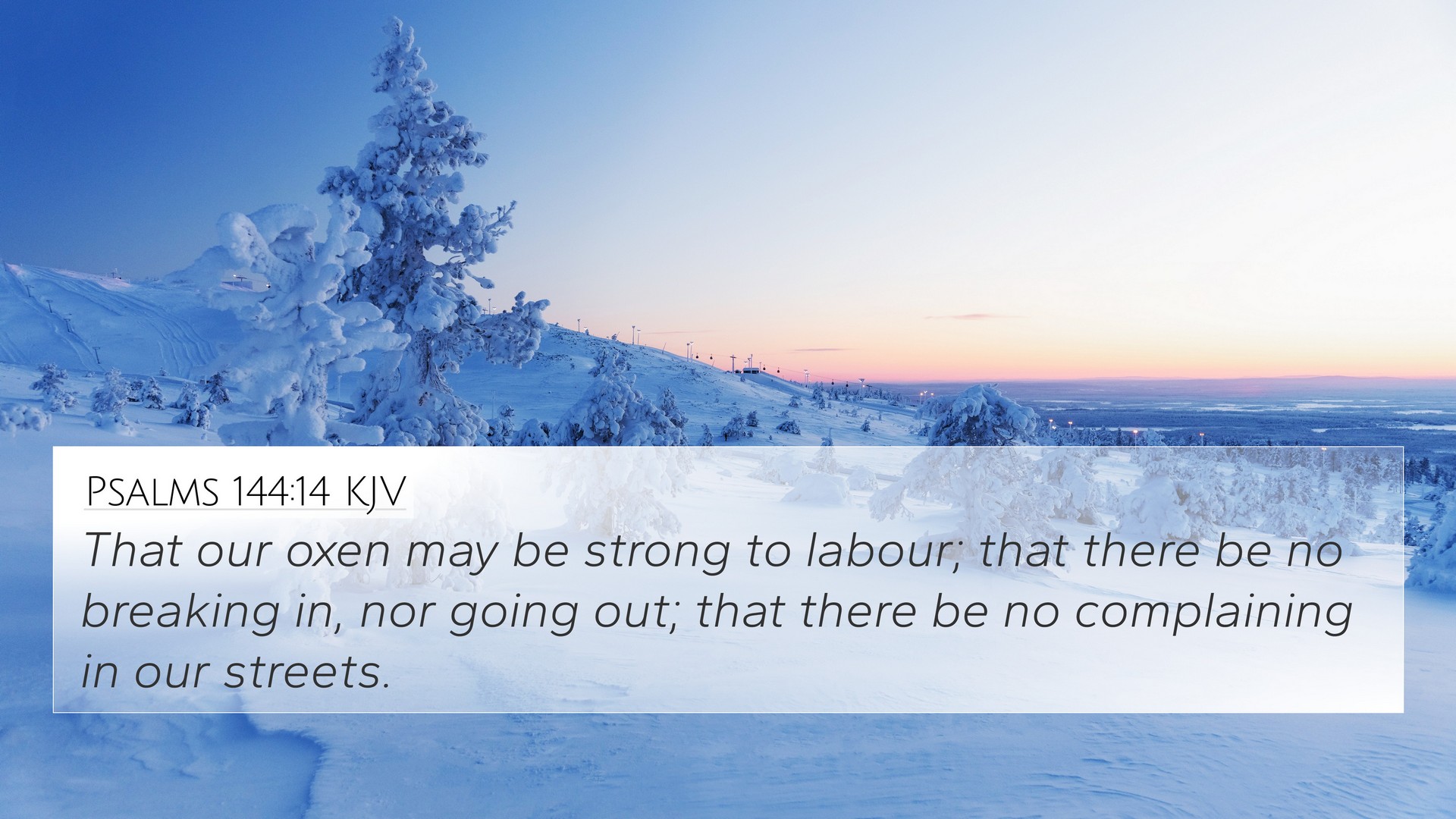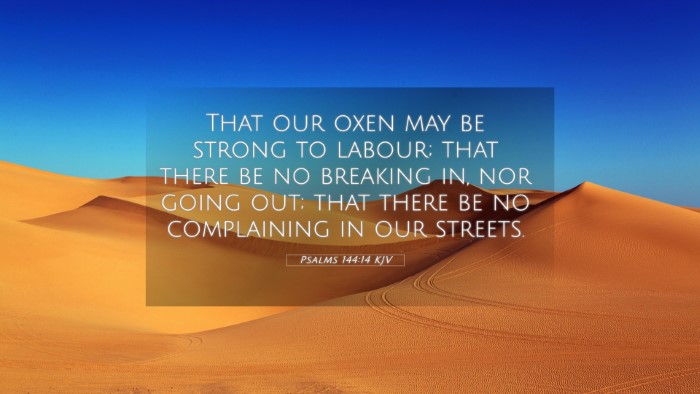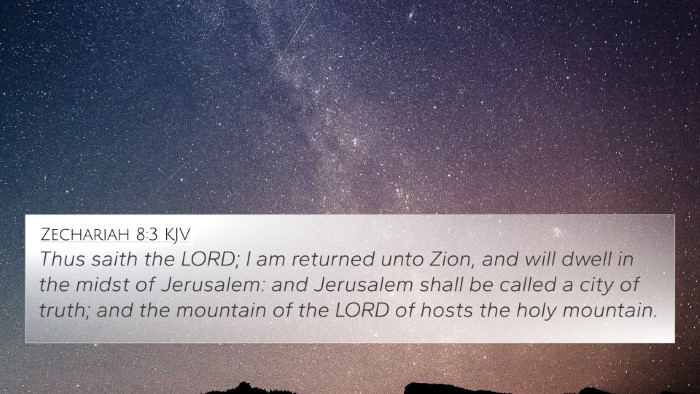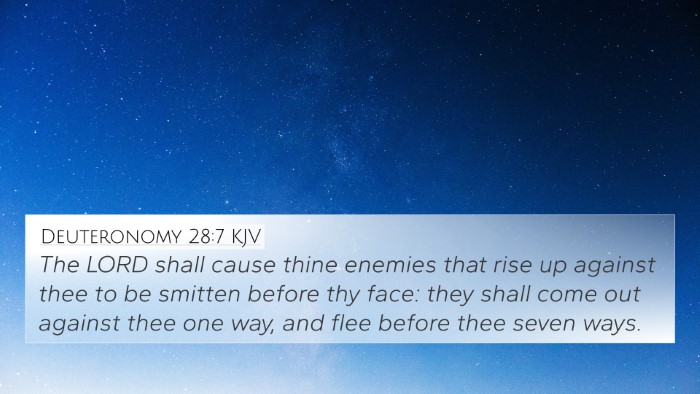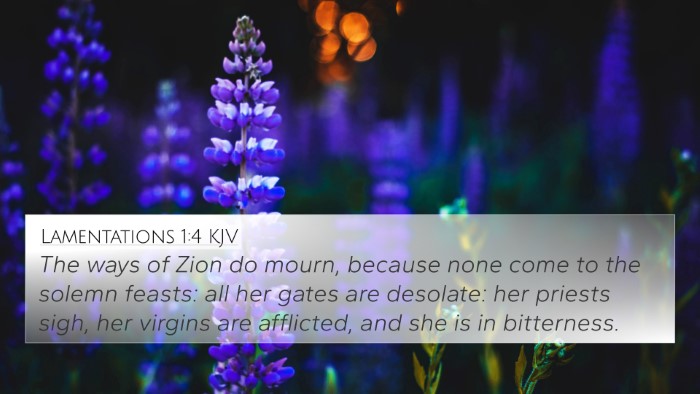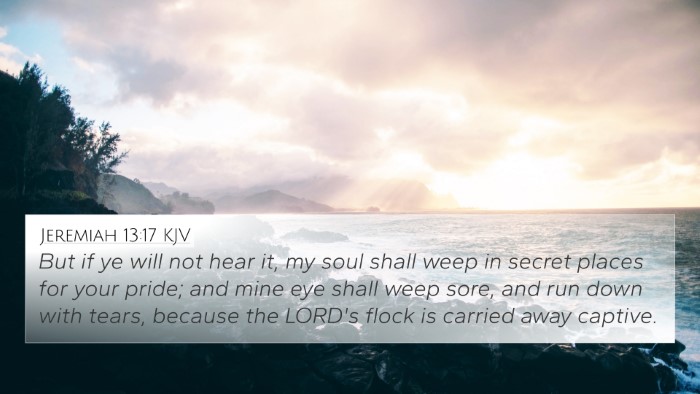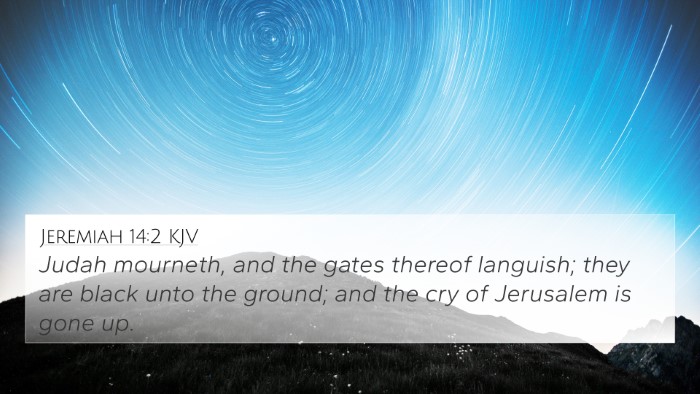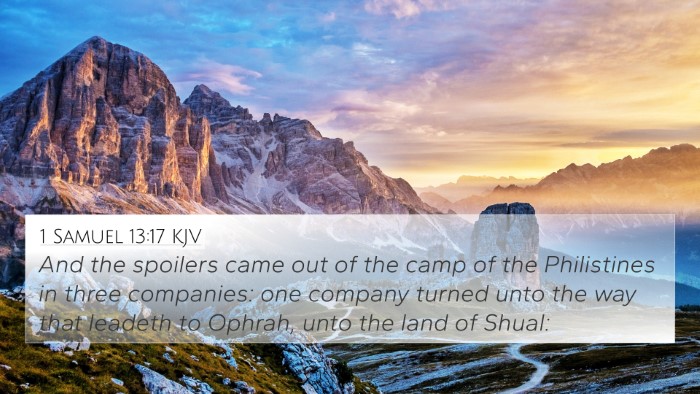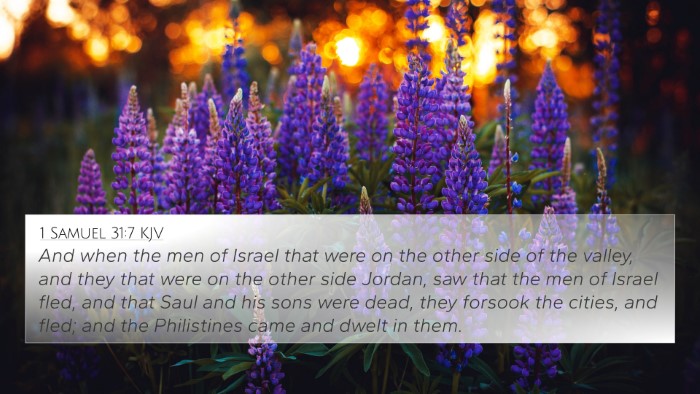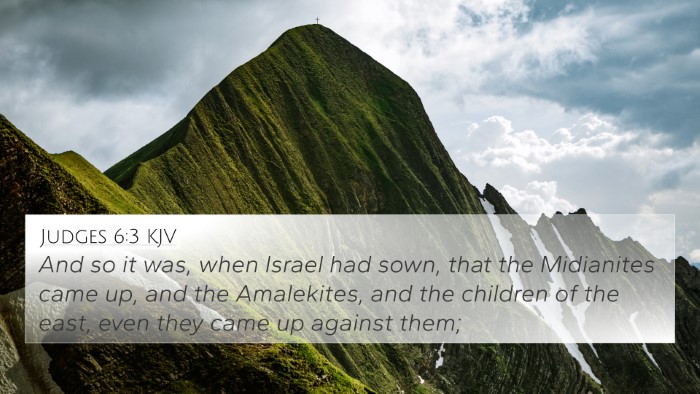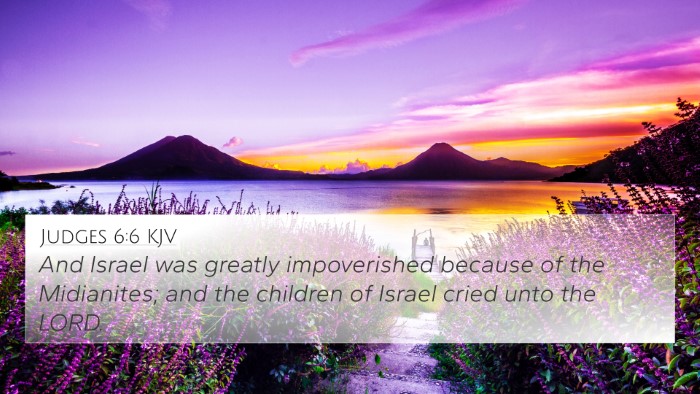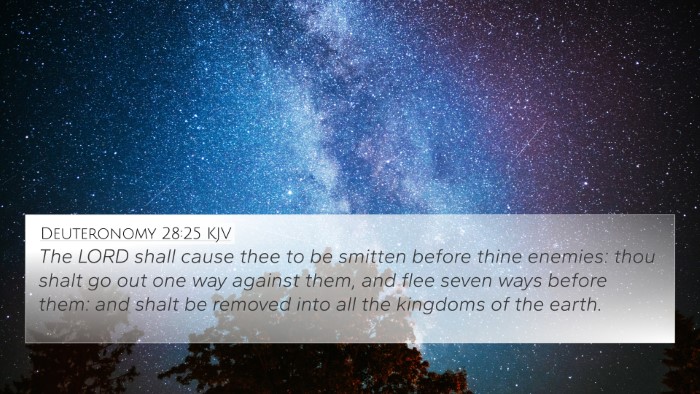Understanding Psalms 144:14
Psalms 144:14 states: "That our oxen may be strong to labor; that there be no breaking in, nor going out; that there be no complaining in our streets." This verse reflects themes of strength, security, and contentment within a community.
Summary of Meaning
The verse centers on the blessings of a prosperous life, emphasizing the importance of both physical strength for labor and social harmony within the community. The psalmist expresses a desire for abundance and peace, highlighting a prayer for protection against external threats and the absence of strife.
Insights from Public Domain Commentaries
- Matthew Henry: Henry elaborates on the importance of having strong oxen, symbolizing strength and productivity. The lack of "breaking in" signifies a plea for security, while "no going out" suggests stability, indicating that the community may remain prosperous and at peace.
- Albert Barnes: Barnes interprets the "oxen" as a metaphor for the work and strength of the people. The verse reflects a deep longing for a society free from conflict and preying enemies, where productivity and prosperity can flourish without fear.
- Adam Clarke: Clarke draws attention to the overall context of the Psalm, highlighting the psalmist’s expression of gratitude for divine protection and providence. He notes that the absence of complaints in the streets showcases a well-governed society attuned to God’s favor.
Thematic Bible Verse Connections
This verse can be understood through connections with other scriptures that revolve around themes of strength, prosperity, and peace:
- Psalms 127:1: "Unless the Lord builds the house, those who build it labor in vain." - Emphasizes reliance on God for true success and security.
- Proverbs 21:31: "The horse is made ready for the day of battle, but the victory belongs to the Lord." - Highlights that physical preparation is important, yet ultimate protection and success come from God.
- Isaiah 32:17: "The work of righteousness will be peace; and the effect of righteousness, quietness and assurance forever." - Suggests that living righteously leads to societal peace.
- Jeremiah 29:7: "But seek the welfare of the city where I have sent you into exile, and pray to the Lord on its behalf." - Expresses the importance of community well-being and peace.
- Matthew 5:9: "Blessed are the peacemakers, for they shall be called sons of God." - A call to maintain peace within the community, resonating with the aspirations of Psalms 144:14.
- Philippians 4:7: "And the peace of God, which surpasses all understanding, will guard your hearts and your minds in Christ Jesus." - Indicates the protective nature of divine peace.
- Romans 14:19: "So then let us pursue what makes for peace and for mutual upbuilding." - Advocates for communal harmony, reflecting aspirations in this Psalm.
Cross-Referencing Biblical Texts
Cross-referencing verses is essential for comprehending the broad message of Scripture. Here are tools and methods for enhancing your Bible cross-reference studies:
- Utilize a Bible concordance to locate themes.
- Engage in cross-reference Bible study by noting parallels between verses.
- Explore a comprehensive Bible cross-reference guide for thematic connections.
- Seek Bible reference resources to broaden your understanding of the text.
- Apply cross-referencing methods to identify relationships between Old and New Testament writings.
Conclusion
Psalms 144:14 embodies the aspirations of a community reliant on God for strength, security, and peace. By exploring its connections to other scriptures, one can appreciate the broader biblical narrative that emphasizes communal welfare and divine protection. Using tools for Bible cross-referencing enhances the interpretative journey and deepens one’s understanding of God's word.
